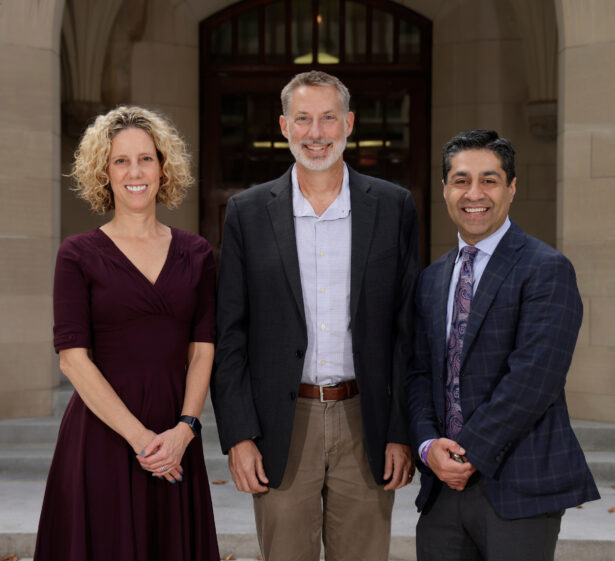Obesity & Cancer
August 6, 2024

A multidisciplinary team of investigators who will probe the connection between obesity and cancer has received a 2023 Endeavor Award from The Mark Foundation for Cancer Research. The three-year, $3 million award will support four closely linked projects exploring the fundamental mechanisms that drive the obesity-cancer connection, taking advantage of a rich collection of matched tumor and adipose tissue samples from patients.
Obesity, which continues to rise in prevalence in the United States and worldwide, increases the risk of multiple diseases including diabetes, cardiovascular disease and cancer. It is a significant risk factor for at least 13 different types of cancer, according to the National Cancer Institute, and may contribute to 1 million new cancers globally each year.
“Obesity is second only to smoking as a modifiable risk factor for cancer, and we really don’t know why that is,” said Jeffrey Rathmell, PhD, Cornelius Vanderbilt Professor of Immunobiology, director of the Vanderbilt Center for Immunobiology, and team lead for the Endeavor Award. Vanderbilt University Medical Center is the host institution for the award.
“We know that obesity affects inflammation and that many of the comorbidities associated with obesity are inflammation-driven, but we don’t have a good picture of inflammation in tumors in people with obesity,” Rathmell said.
There’s also an “obesity paradox,” he noted, in that obesity can, in some cases, improve responses to cancer immunotherapy.
“It’s a bit of a yin and yang question,” said Alyssa Hasty, PhD, Cornelius Vanderbilt Professor of Molecular Physiology and Biophysics at Vanderbilt University School of Medicine and a co-principal investigator on the team. “You want to have more inflammation to kill tumor cells, so adipose tissue inflammation could be good in that context and improve responses to cancer immunotherapy, but obesity still increases risk of colorectal and other types of cancer. One of our main questions is: ‘Is there a relationship between adipose tissue inflammation and tumor growth?’”
The team will focus on renal, pancreatic and colorectal cancers, all of which have increased risk with obesity and are associated with visceral adipose — the internal adipose tissue most closely linked with inflammation in metabolic dysfunction.
Kathryn Wellen, PhD, professor of Cancer Biology at the University of Pennsylvania, and Liza Makowski, PhD, professor of Medicine in Hematology and Oncology at the University of Tennessee Health Science Center, are also co-principal investigators on the Endeavor Award team.
VUMC investigators Kathryn Beckermann, MD, PhD, assistant professor of Medicine in Hematology and Oncology, and Kamran Idrees, MD, MSCI, Ingram Associate Professor of Cancer Research, associate professor of Surgery and chief of the Division of Surgical Oncology & Endocrine Surgery, will co-lead an initiative to collect matched tumor and adjacent adipose tissues from patients with renal, pancreatic and colorectal cancers, along with blood samples and subcutaneous (not tumor-adjacent) adipose tissue.
The researchers will also collect matched tumor and adipose tissue samples from mouse models. Rathmell will lead efforts to analyze immune and metabolic profiles of the human and mouse samples. The biorepository of samples, database of analyses and de-identified patient information will feed into a shared “Cancer & Adipose Immunometabolism Resource” that all four principal investigators will build and draw on.
